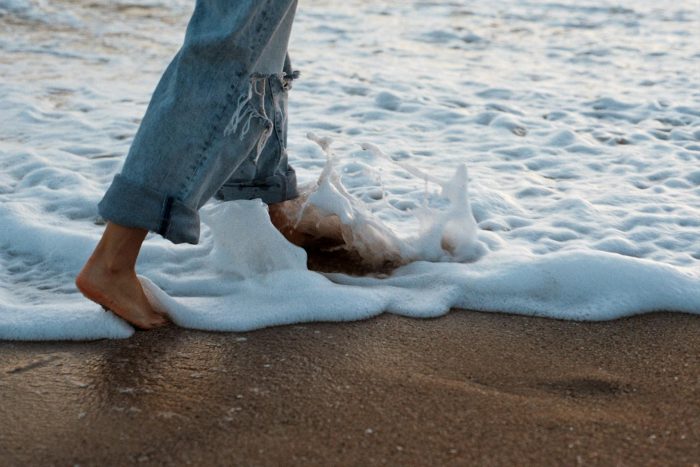{*Did you know you can write on Elephant? Here’s how—big changes: How to Write & Make Money or at least Be of Benefit on Elephant. ~ Waylon}
~
Aldous Huxley’s Brave New World is a place of endless activity: thinking people, it’s believed, are unhappy people; and the only way to stop people from thinking is to keep them busy with an unlimited supply of activities and drugs.
All these activities are organized by World Controllers, whose ultimate aim is to preserve social stability by giving people everything they need to be happy. Thought-provoking books have been banned, and people’s every spare moment is taken up by games, movies, shopping, and short-lived romantic trysts. There can be no social stability without individual stability, and no individual stability in a world where thinking—and along with it, distraction-less time spent in isolation—is allowed.
Rady Bradbury poses a similar scenario in Fahrenheit 451, a novel that describes a world in which the government has banned all books and replaced them with an endless parade of television shows. The government’s reasoning, much like Huxley’s World Controllers, is that mindless distraction keeps people happy, whereas reading—and therefore thinking—creates unhappiness and instability. In both these examples, people are kept busy so that they don’t have time to think, all with the ostensible aim to make the world a better place.
Is an unthinking world a better world? It is true that thinking can bring unhappiness. Ask anyone who has ever dedicated a lot of thought to something, and they will tell you that turning an idea over and over in our heads can be a pretty painful experience. Note that I’m not referring to “overthinking,” which is the act of anxiously replaying something that is past, or being indecisive about some future event; rather I’m talking about the process of grappling with an idea—of exploring every nook and cranny of it, of considering every possible iteration, and of gathering as much information as we possibly can—until we have the most perfect version of it we can possibly muster.
Unfortunately, while doing this kind of thinking is necessary for any worthwhile outcome, it does come at a price. Thus, it is not implausible that thinking makes for a potentially unhappy world; but does that mean a world without thinking, although happier, is better?
Thinking is a solitary act. The art of forming and developing new ideas—of picking them out of the dust and polishing them until they make sense—can only happen in isolation. Part of this process, of course, is sound-boarding and researching, which requires the input of peers and some cognitive effort dedicated to absorbing the thoughts of others; but before there can be sound-boarding and research, there must be isolated thinking.
In a world with constant activity, the isolation needed for thinking becomes impossible, and new ideas disappear. This world, although stable and happy (by Huxley’s and Bradbury’s standards), is empty and impoverished. This is a world without the Mona Lisa, the Taj Mahal, Stradivarius violins, and the lightbulb. It is a world in which none of the great religious texts were ever written, and none of the world’s most admired philosophical and scientific ideas ever came to the fore. It is a world without technological advancement or cultural depth—in other words, it is a world without a soul.
“Did you ever feel as though you had something inside you that was only waiting for you to give it a chance to come out? Some sort of extra power that you’re not using?” says Huxley’s character, Helmholtz Watson. Helmholtz has a point—we all have some “extra power” that can bring great meaning to both our own lives and the world; but what Helmholtz doesn’t realize is that for that extra power to come out, he needs to spend time thinking about it. Moreover, he needs to bring what is inside him out, not just for his own well-being, but also for the benefit of the world. “I claim the right to be unhappy,” says Huxley’s Tomakin, because it is only through happiness that truth, beauty, and meaning can be brought into our lives, and into the world.
Philosopher Immanuel Kant was renowned for taking a daily walk; in fact, so consistent was he in this regard that neighbors jokingly said they could “set their watches by his habit.” The reason for these walks? To think. Kant understood the importance of doing nothing, so that he could do more. By doing nothing, I don’t mean doing nothing productive; instead, I mean not doing things that keep us away from our thoughts, such as reading, scrolling, socializing, or watching series or movies. In other words, doing nothing except thinking. Other great artists, writers, and inventors had similar habits, all of which points to the fact that it is only by freeing ourselves from distractions—however happy they may make us—that truly great things can emerge.
I have often been told that I could never be a writer because I’m far too busy—with people, with books, and with the world at large. Hearing this was uncomfortable, but it was also true. I had an endless array of ideas, but none of them ever amounted to anything, and I wasn’t able to produce much. It was only once I realized that I needed to isolate myself and face the painful process of thinking that my ideas started taking shape: what was once stuck in my head finally blossomed into something I could share with the world—and in a strange way, while the process of thinking was painful, finally being able to create something brought me happiness. That being said, I also learned that everyone’s thinking process looks different and we all need to figure out what works best for us as individuals.
Being alone with your thoughts can be a terrifying thing, but this doesn’t mean you should shy away from them. In fact, it is that very terror that can inspire the most meaningful ideas. Thinking comes at a price: “What you need,” says Tomakin to the Controller of the brave new world, “is something with tears for a change. Nothing costs enough here.”
And he is right: it is only through mastering the art of doing nothing—and paying the price for it—that we can create a world that is worth something.
~
{Please consider Boosting our authors’ articles in their first week to help them win Elephant’s Ecosystem so they can get paid and write more.}


 Share on bsky
Share on bsky





Read 1 comment and reply